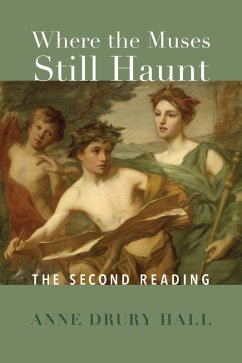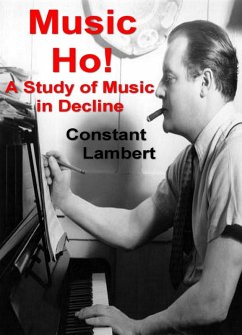
Decline of the Novel (eBook, ePUB)

PAYBACK Punkte
8 °P sammeln!
The novel has lost its purpose, Joseph Bottum argues in this fascinating new look at the history of fiction. We have not transcended our need for what novels provide, but we have grown to distrust the culture that allowed novels to flourish. "For almost three hundred years," Bottum writes, "the novel was a major art form, perhaps the major art form, of the modern world-the device by which, more than any other, we tried to explain ourselves to ourselves." But now we no longer "read novels the way we used to."In a historical tour de force-the kind of sweeping analysis almost lost to contemporary...
The novel has lost its purpose, Joseph Bottum argues in this fascinating new look at the history of fiction. We have not transcended our need for what novels provide, but we have grown to distrust the culture that allowed novels to flourish. "For almost three hundred years," Bottum writes, "the novel was a major art form, perhaps the major art form, of the modern world-the device by which, more than any other, we tried to explain ourselves to ourselves." But now we no longer "read novels the way we used to."
In a historical tour de force-the kind of sweeping analysis almost lost to contemporary literary criticism-Bottum traces the emergence of the novel from the modern religious crisis of the individual soul and the atomized self. In chapters on such figures as Sir Walter Scott, Charles Dickens, and Thomas Mann, he examines the enormous ambitions once possessed by novels and finds in these older works a rebuke of our current failure of nerve.
"We walk with our heads down," Bottum writes. "Without a sense of the old goals and reasons--a sense of the good achieved, understood as progress--all that remains are the crimes the culture committed in the past to get where it is now. uncompensated by achievement, unexplained by purpose, these unameliorated sins must now seem overwhelming: the very definition of a failed culture." In readings of everything from genre fiction to children's books, Bottum finds a lack of faith in the ability of art to respond to the deep problems of existence. "the decline of the novel's prestige reflects and confirms a genuine cultural crisis," he writes.
Linking the novel to its religious origins, Bottum describes the urgent search for meaning in the new conditions of the modern age: "If the natural world is imagined by modernity as empty of purpose, then the hunt for nature's importance is supernatural, by definition." the novel became a fundamental device by which culture pursued the supernatural-facilitated by modernity's confidence in science and cultural progress. Losing that confidence, Bottum says, we lost the purpose of the art: "the novel didn't fail us. We failed the novel."
Told in fast-paced, wide-ranging prose, Bottum's The Decline of the Novel is a succinct critique of classical and contemporary fiction, providing guidelines for navigating the vast genre. this book is a must-read for those who hunger for grand accounts of literature, students of literary form, critics of contemporary art, and general readers who wish to learn, finally, what we all used to know: the deep moral purpose of reading novels.
Dieser Download kann aus rechtlichen Gründen nur mit Rechnungsadresse in A, B, BG, CY, CZ, D, DK, EW, E, FIN, F, GR, HR, H, IRL, I, LT, L, LR, M, NL, PL, P, R, S, SLO, SK ausgeliefert werden.













